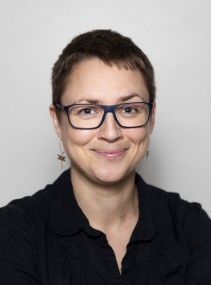Prof. Dr. Elina Eriksson

Associate Professor in Human-Computer Interaction, KTH Royal Institute of Technology
Elina Eriksson is an Associate Professor in Human-Computer Interaction with a specialization in Sustainability at the Division of Media Technology and Interaction Design (MID), School of Electrical Engineering and Computer Science (EECS), at KTH Royal Institute of Technology. She is also associated with Green Leap and Digital Futures at KTH. Her research concerns sustainable lifestyles and the pursuit of low carbon futures. Her research is often action-oriented and strives to support transitions to a more sustainable society through design interventions such as digital tools and workshop methods that can be applied to society at large. She also teaches about sustainability and ICT and conducts research on how to integrate sustainability in computing education.
elina
linkedin.com/in/elina-eriksson-ba44371
kth.se/profile/elina/
-
Ecocide Law – a trojan horse for paradigmatic shift, also for computing.
Elina Eriksson talk about Ecocide Law which is suggested to be added as a fifth crime to the Rome Statute of the International Criminal Court in the Hague (ICC). This might seem far removed from computing – but in this talk Elina will elaborate on how Ecocide Law can be a lens to view the impacts of computing and perhaps even become a trojan horse for paradigmatic shift.
